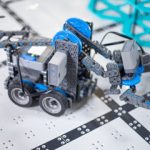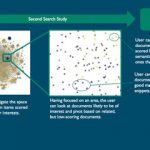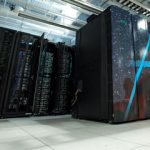Marshaling resources to fight COVID-19
As Sandia and the nation came to terms with a new, socially distanced reality, researchers within the Labs’ Integrated Security Solutions Division were working to understand the biology of the novel coronavirus, learn how the human body responds to infection by SARS CoV-2 and model how COVID-19 spreads in a population.
COVID-19 can’t stop these kids
Sandia collaborated with local nonprofit R4 Creating for the third annual Robotics Training Institute for teens, a weeklong event that has become a summer highlight for the Labs’ robotics group. This year, they went virtual.
Quantum computing expert honored by DOE
Sandia computer scientist Kevin Young believes that he can improve the performance of modern quantum information processors, and now the DOE Office of Science has named him to its Early Career Research Program.
Cybersecurity researchers take spotlight at national showcase
Two Sandia computer scientists were invited to pitch their software to investors, entrepreneurs and prospective customers at a special virtual event sponsored by DOE to accelerate the commercialization of federally developed technologies.
Research program opens doors for grad students
The DOE Office of Science Graduate Student Research Program is looking for graduate students to take positions at Sandia and change the world with their contributions. Each year, the program supports about 100 doctoral students by funding positions for them within the national laboratories complex.
Basic laws of physics spruce up machine learning
A proposed project to help scientists use the laws of physics to view multiscale physical events with a clarity never before achieved has won a DOE Early Career Research Program award for Sandia researcher Nathaniel Trask.
Finding COVID-19 needles in a coronavirus haystack
To accelerate the filtering of coronavirus studies in the search for information relevant to COVID-19, Sandia has assembled a combination of data mining, machine-learning algorithms and compression-based analytics to bring the most useful data to the fore on an office computer.
Expanding access to cyber research tools
Faculty and students at Purdue University now have access to cybersecurity research software developed at Sandia. The software, called minimega, will help advance cybersecurity research to discover security threats in a variety of systems and develop new safeguards. This is the first time Sandia has collaborated with an academic community to make its cyber software widely available.
Breaking down the memory-speed bottleneck
This spring, Labs researchers anticipate Sandia becoming one of the first DOE laboratories to receive the newest A64FX Fujitsu processor, a Japanese Arm-based processor optimized for high-performance computing.
Printing face shields for the front lines
Teens who learned to build 3D printers during a weeklong robotics camp at Sandia last year have used them to make more than 3,000 face shields that have been donated to medical professionals and first responders in New Mexico.









